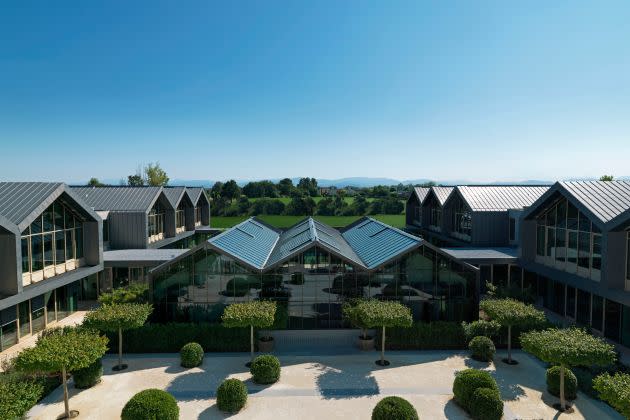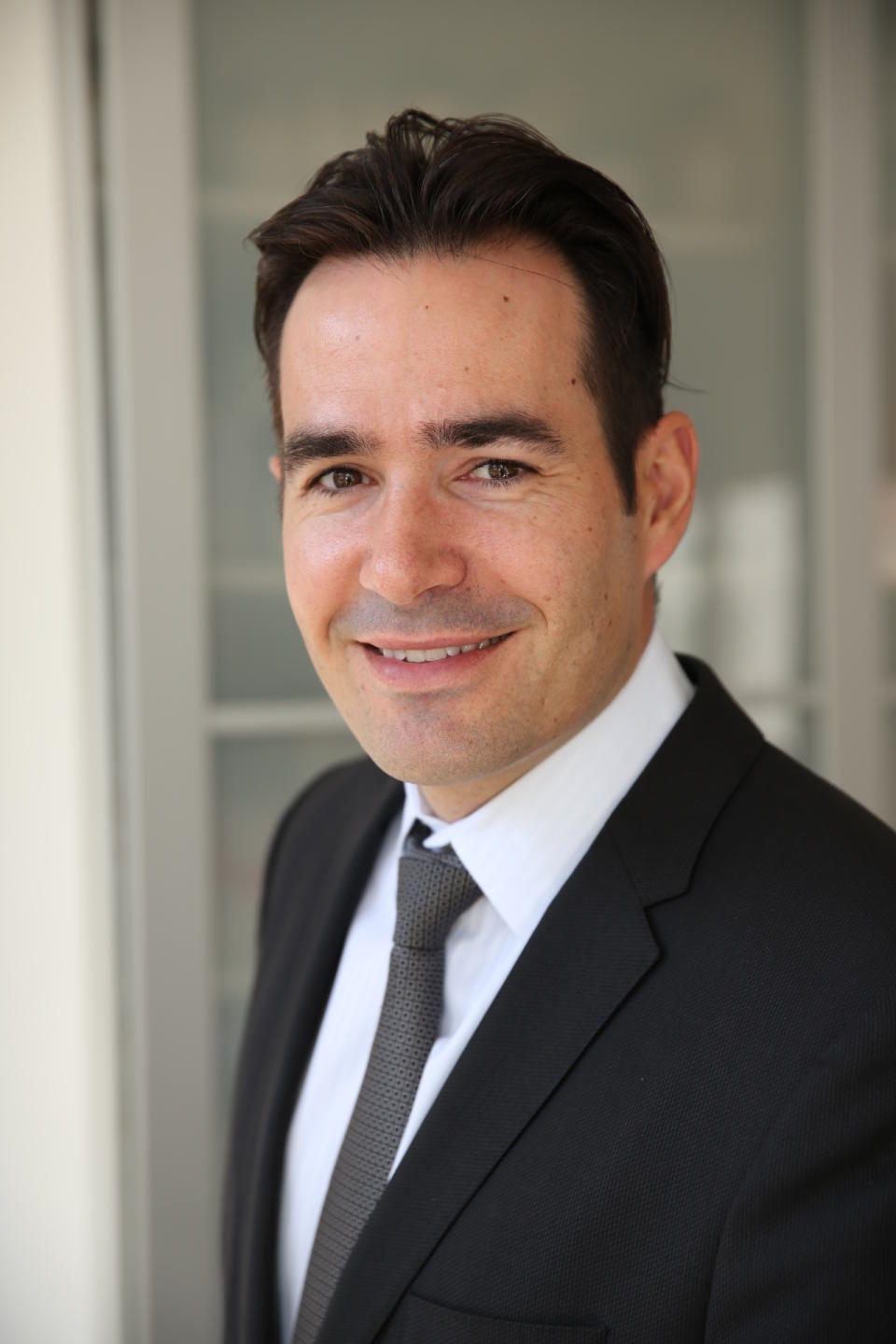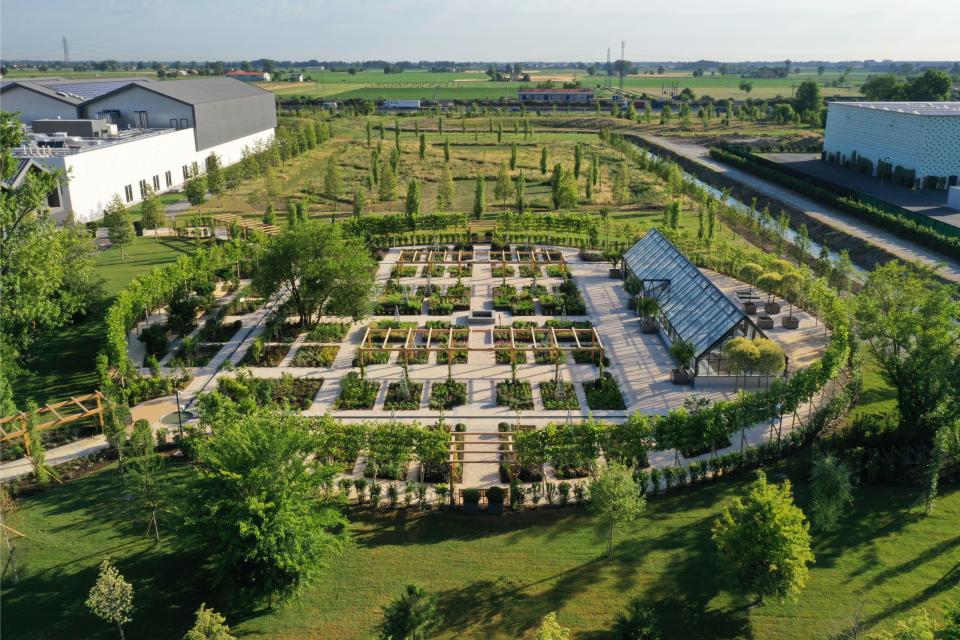Davines Group’s CEO Anthony Molet Eyes Double-Digit Growth Until 2030

MILAN — “Continuity” is the most frequent term Anthony Molet uses when outlining Davines Group’s strategy across the board.
After 20 months in the role, the chief executive officer of the Italian beauty company, which operates professional hair care brand Davines and skin care label Comfort Zone, is committed to continuing “to grow the company in line with our purpose, which is to do our best for the world, creating good life for all through beauty, ethics and sustainability.”
More from WWD
A noble mission that so far has proven to be remunerative as well, since the company — which was founded in 1983 by the Bollati family — keeps growing both its size and international footprint.
In 2021, the group had 191.8 million euros in sales, up 25.6 percent compared to the previous year and up 17.7 percent versus 2019. Molet projected a further 20 percent increase to 230 million euros in revenues this year and targets reaching between 250 million euros and 260 million euros in sales in 2023.
He credited the performance to the “continued consistency within our organization in general, consistency with our message when it comes to sustainability, consistency with our distribution channel. We remain very close to the hairdressers and aestheticians, to the professional part of the business, and it seems to be paying off. So we will continue to do so,” said Molet, confidently adding that he sees the firm growing by double digits “until at least 2030 without the acquisition of any other company.”
The executive is further accelerating the path traced by his predecessor Paolo Braguzzi, who broadly contributed to scaling up the group in financial and reputational terms, as well as enhancing its distinctive holistic, sustainable mission, which was sealed by the B Corp certification in 2016 and an even higher certification score in 2020. For example, when Braguzzi joined Davines in 2004, total sales were 27 million euros, while in 2019 revenues reached 163 million euros, making Davines one of the leading professional hair care players in Italy.
Leveraging Molet’s own experience — the executive previously helmed the North American subsidiary of Davines Group for 13 years, contributing in turning that market into the best-performing one for the company — the group is further boosting its international reach, too. Molet revealed that effective Jan. 1 a new subsidiary in Germany will be added to the firm’s network.
“This is a very strategic market for us: first, it [counts more than] 80 million people… Its economy is very strong as it has one of the strongest GDP in Europe and I think that our message on sustainability will resonate very well there,” noted Molet, underscoring that both the Davines and Comfort Zone brands have been steadily growing there.
“We had the same distributor for the last 20-plus years, but we felt that after so many years it was time for us to establish a subsidiary there. We had a very smooth transition with [our partners], actually… and we have decided to allow them to keep [a little] part of the distribution,” said Molet.
Headquartered in Parma, Italy, Davines Group is present in more than 90 countries. In addition to Germany, it has branches in London; New York; Paris; Mexico City; Hong Kong, and Deventer, Netherlands. No other openings are in the pipeline at the moment, said Molet.
The U.S. and Europe remain the group’s leading markets in terms of sales, but the company grew double-digit in every country. In particular, a strong push in Asia and Latin America enabled Davines Group to report increases in those regions of 20 percent and 30 percent, respectively. “We are very confident that new regulations in China should open some doors for us,” said Molet, referring to animal testing procedures, while he also identified India as a next target for the company.
Breaking down the group’s performance in 2022 by category, sales for the hair care division grew 20 percent while skin care revenues were up 17 percent.

Even though these results beat Molet’s expectations, the executive mentioned different challenges over the past year, starting in the first quarter with the ongoing impact of COVID-19 and Russia’s invasion of Ukraine.
“Then, as a consequence, the whole supply chain became a real challenge, not only in terms of increases in prices, but even more importantly, in terms of availability of raw materials, which sometimes forced us to fine-tune some of our formulas,” said Molet. “I feel that it’s starting to slowly be behind us, but still that was probably the biggest challenge this year.”
To face the situation, early in the year the group decided to increase inventories, both in terms of finished goods and raw materials, “which enabled us to face this crisis,” recalled Molet. Still, the company had to adjust its products’ prices — even doubling them in some markets — due to the scarcity of ingredients and rising energy costs.
“In 2023, we are looking at what I would consider a conservatively aggressive price increase again,” admitted the executive.
In terms of corporate structure, after having implemented some key management changes last year, Davines Group made new hires in human resources as well as in the communication department, which Molet defined as “a big focus for us because I feel we do so many things when it comes to sustainability that deserve to be communicated in the right way.”
To wit, Davines Group’s longtime expertise in developing high-performance, natural formulations, recycled and reusable packaging and implementing environmentally friendly initiatives are the assets that earned the firm both credibility and an advantage at a time when every business is trying to tweak its structure and product offering in a sustainable way. The ever-increasing appetite of international customers for natural beauty products further propelled the company’s sales.
“Sustainability is becoming more and more present in people’s conversation. Today statistics show that many people are willing to spend more money for companies with a purpose and that care about the environment and we are definitely taking advantage of this trend,” confirmed Molet, highlighting that the brand’s official commitment to the cause started in 2006.
“It’s also true that we see a lot of greenwashing because many companies try to jump on this trend, but I think what has been helping Davines is its level of commitment,” he said, citing different projects the firm has implemented.

For example, last year Davines Group teamed with Rodale Institute, a U.S.-based nonprofit that specializes in regenerative organic agriculture. As result, it expanded its Davines Village headquarters to include a regenerative organic farm, research center and education hub aimed at exploring how these farming practices can influence the supply chain of personal care products while simultaneously helping to mitigate climate change.
Earlier this year, the Italian company also joined forces with more than 30 fellow certified B Corporations to establish the B Corp Beauty Coalition, the mission of which is to promote systemic change in the beauty industry by improving its sustainability standards through collective action. These include identifying and sharing social and environmental best practices; exploring innovative solutions; publishing results, and implementing clear communication to raise consumers’ awareness in associating beauty with responsibility, among others.

